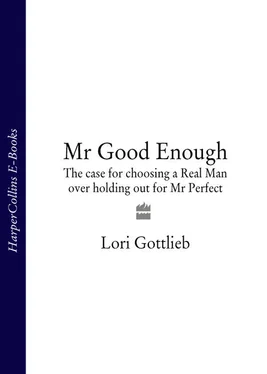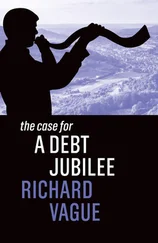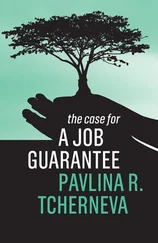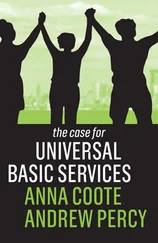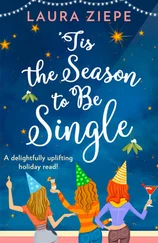“He’s the only guy who does it for me,” she said, which sounded like quite an endorsement. Add the fact that I have a science background, and this guy seemed incredibly hot. But I said no, back when I was 29, because when my hairdresser said that Tom had red hair, I didn’t think I’d be attracted to him. I just knew that red hair wasn’t going to work for me. (Apparently, my bar for men was higher than that of a lesbian.)
There was also the cute, smart, funny lawyer I went on several dates with until I lost interest because he overused the word “awesome.” I remember telling a friend, “Everything is ‘awesome’ with him. It’s not ‘great’ or ‘wonderful’ or ‘interesting’ or even ‘cool.’ It’s always ‘awesome.’” I tried to get past it, but it irritated me every time he said it. (Somehow, the fact that I said “like” and “you know” all the time didn’t seem to irritate him.)
In my early thirties there was the adorable software developer I met at a party who gave me his work number and told me to call there anytime because, he said, “That’s where I always am.” I didn’t want to be with a workaholic, so I never called. It didn’t occur to me that maybe he was at work all the time because he was starting his own firm, or that if he had a girlfriend, he might have more of a reason to leave at night. Nor did I bother to find out, because I always assumed there would be another setup, another guy at a party, or another online prospect. And even when the available guys and the opportunities to meet them seemed scarcer as I edged into my mid-thirties, I only got into serious relationships with men who met my rather strict and, in hindsight, superficial criteria. I had the attitude of, “I didn’t wait this long searching for The One, only to end up settling.” But would I really have been settling with the red-headed chemist, the lawyer who liked the word “awesome,” or the software guy who happened to work until midnight as he launched his business?
I’ll never know.
Like me, the women I met with at the bar were embarrassed by the way they’d dismissed men in the past, evaluating every guy as either too-something or not-something-enough. These guys didn’t fit our image of the person we thought we’d end up with, leaving us to end up with nobody.
I asked the group if these types of things would still be deal-breakers for them now.
“If I met a guy now who hadn’t seen Casablanca,” said Kathy, a 38-year-old consultant, “I wouldn’t rule him out, but I would still be aware of it in the back of my mind. I can’t say I’d dismiss it completely because it speaks to a larger issue of cultural void. Overall, though, my deal-breakers have changed.”
What would be their deal-breakers now? Someone with an addiction, someone who had a bad temper, someone who’s unkind, someone who doesn’t have a job, someone who’s not warm or doesn’t have a generous spirit, someone who’s inflexible, someone who’s irresponsible, someone who’s dishonest, someone who wouldn’t be a great father, someone who’s old enough to be their own father. The rest, these women feel, is negotiable, but it’s a realization that might have come too late: In their experience, the men who will date them now often come with these more serious deal-breakers, whereas the guys who would date them ten years ago didn’t.
“In a way, I’m still looking for the same kind of guys I was when I was twenty-five, except that I also want them to be family-oriented and be good providers, which I wasn’t thinking about back then,” said Beth, a 37-year-old pharmaceutical rep. “Those are the guys I used to break up with.”
Amy, a 43-year-old interior designer, agreed. She said that she always had boyfriends until she was 39, when, she explained, “I suddenly stopped getting asked out by anyone younger than fifty.”
So, I asked, why can’t they go back to those guys they’d passed up, who now sound pretty appealing?
In unison, they said, “They’re all married!”
WHO CARES IF HE’S SEEN C ASABLANCA?
I had to wonder: Who were the women that married those guys? A week later, I met with some of them. On the surface, they seemed a lot like the women who’d dumped their husbands. They were around the same age, and similar in terms of looks and education. In fact, I could imagine these married women having become their single counterparts if it hadn’t been for one distinguishing quality: the ability to redefine romance. Nancy, who is married to the “predictable” guy, explained it like this:
“I think the difference between women who get married and women who don’t is that women who don’t get married never give up the idea that they’re going to marry Brad Pitt, and it never occurs to them that they might not get married at all. They may say, ‘I’m never going to meet anyone,’ but that’s just like saying, ‘Oh, I’m fat’ when you don’t believe you are. It’s something women just say, in a self-deprecating way. When you’re young you’re always meeting guys, so deep down you believe that The One will suddenly show up. It doesn’t occur to you that maybe it’s okay if The One doesn’t look like Brad Pitt and earn a gazillion dollars and make your knees go weak every time you’re together. Well, it occurred to me, but not until I was thirty-five.”
That’s when she met Mr. Predictable.
“So many women say they’d rather be alone than settle, but then they’re alone and miserable—and still holding out for the same unrealistic standards,” Nancy said. “They assume their soul mate will appear and it will have been worth the wait. Then they’re blindsided and shocked when that doesn’t happen. And it’s too late.”
Too late, she meant, for the life she has with the predictable guy.
“It is predictable,” Nancy admitted. “But it’s a lot better than always wondering what was going on with the more exciting guys. That wasn’t love. What I have now is love. I have an amazing husband and two wonderful kids. I couldn’t ask for a better family. And my husband is exciting, just in less obvious ways.”
Sara, who’s 42 and married to the ring-of-hair guy (who, at 43, is now completely bald, except he still has that tuft sticking out in front), told me that she feels lucky to have been at a place in her life at age 34 when she finally stopped getting hung up on things like how much hair a guy had.
“A year or two earlier, I wouldn’t even have considered meeting a bald guy,” she told me.
She’s glad she changed her mind, she said, because if she hadn’t, she would have missed out on falling in love with her husband—and probably ended up with no husband at all.
“I don’t know one available guy out there who’s as desirable as my husband and would also date me at this age,” she said. “If I were single today, my own husband probably wouldn’t date me either. I wouldn’t be on his radar. Why would a forty-three-year-old guy who’s kind and successful and funny date a forty-two-year-old woman when he could easily attract an equally interesting thirty-five-year-old who’s prettier and young enough to have kids with instead?”
I told Sara that a lot of women would be offended by that kind of thinking, but she just shrugged her shoulders.
“Let me put it this way,” she said. “It’s a good thing I met my husband when I did. Because if I’d passed him by, he’d be married, and I’d still be sitting around wondering where the few good men were.”
A FEW GOOD MEN
That’s exactly what I was wondering: Where were a few good men? When I sent out a mass e-mail looking for single men, ages 25 to 40, to interview for this book, a typical reply went like this: “I don’t know any single men, but do you need any single women? I know a lot of those.”
Читать дальше
